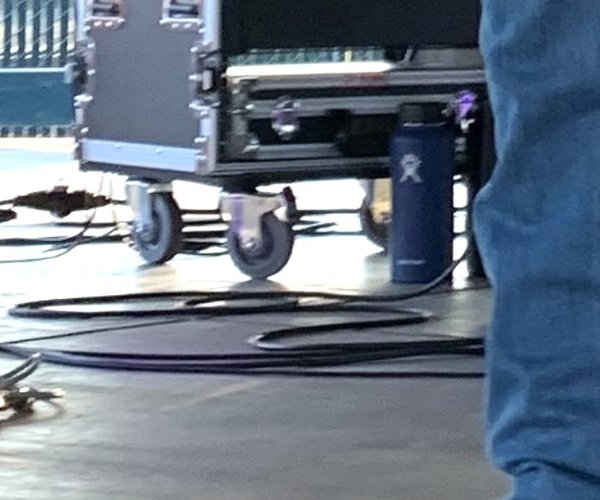More than 50 California Dairy Campaign (CDC) members from around the state agreed during a meeting in Oakdale this past week to call on Congress to pass legislation to enable California to join the Federal Milk Marketing Order (FMMO), petition USDA Secretary Vilsack to raise producers prices to account for record high feed costs and urge Environmental Protection Agency (EPA) Administrator Lisa Jackson to waive the Renewable Fuels Standard (RFS) ethanol mandate due to the economic harm it is imposing on dairy producers.
"Record high feed costs are jeopardizing dairy operations around the state," explained CDC President Joe Augusto. "Dairy producers are not able to pass on these higher costs so it is critical that Congress and the Obama Administration take immediate action to sustain dairy operations in our state and across the nation."
"Due to the fact that our state dairy pricing system does not pay a fair value to producers for milk, over the last 12 months, California dairy producers have lost hundreds of thousands of dollars at a time when every penny is critical given sky high feed costs," explained CDC Executive Director Lynne McBride. "Prices paid to dairy producers in California are the lowest of any regulated state in the nation and joining the FMMO would increase producer prices significantly."
"Our members signed petitions to be delivered to USDA Secretary Tom Vilsack to urge him to use his existing authority to raise dairy producer prices to account for feed costs and lack of feed availability," McBride added. "CDC members wrote letters to EPA Administrator Lisa Jackson to urge her to waive the RFS ethanol mandate due to the severe economic harm it is imposing on dairy producers as feed prices soar."
The California Dairy Campaign (CDC) is a grassroots organization of dairy farmers who are working to encourage lawmakers and the dairy industry to be more responsive to the needs of the family dairy farm in California. CDC is a member organization of California Farmers Union (CFU) which is a state chapter of National Farmers Union (NFU). Comprised of more than 1400 farmer and rancher members, CFU advocates policies at the state and national levels on behalf of its membership throughout California.
Meanwhile, legal action was filed recently in Superior Court of California (San Bernardino County), stating that the California Department of Food and Agriculture (CDFA) failed to follow the law in refusing to bring California's Class 4b price into better alignment with the prices being paid by cheese manufacturers around the country. The "Writ of Mandamus" was filed on behalf of California Dairy Campaign, Dairy Farmers of America, Milk Producers Council and Security Milk Producers Association.
The legal action stems from an administrative hearing held by CDFA on May 31-June 1. That hearing was held to consider changes to the formula used by CDFA to calculate California's "Class 4b" monthly minimum price. The Class 4b price announced each month is the minimum price that must be paid for milk being sold to cheese manufacturers. California law requires CDFA to calculate prices that are in a "reasonable and sound economic relationship" with what comparable milk is sold for around the country.
"California dairy producer prices are significantly below those paid to producers in surrounding states," said Augusto. "CDFA failed to restore fairness to our state dairy pricing system to accurately reflect current market demand for milk. We are calling for an objective review of CDFA's current decision so that dairy producers are paid a fair price in the future."
A vast majority of the U.S. dairy industry outside of California operates in Federal Milk Marketing Orders (FMMO), which calculate a national "Class III" price that must be paid by cheese manufacturers regulated under the FMMO. When comparing these two monthly prices over the past 10 years, a disturbing trend has developed since 2010. CDFA has a history of discounting the Class 4b price below the FMMO Class III price, but that discount has blown up in size since 2010. The gap in 2010 was about $1.24 per hundredweight, and since the beginning of 2011, the California Class 4b price has averaged $2.00 per hundredweight below the FMMO Class III price.
What does this mean in real dollars for California's dairy families? An average-sized California dairy, milking 1,000 cows, lost about $380,000 of much-needed revenue that, under the law, should have been paid for their milk since January 2010, simply because CDFA's pricing policy fails to maintain a reasonable relationship with comparable milk prices around the country. Cumulatively, that equates to more than $590 million that was due to California's dairy families and was instead retained by the State's cheese manufacturers. California's dairy farms, of which 99 percent are family owned, are facing record high feed costs and cannot afford to sustain this state-sponsored discounting of milk.
"Record high feed costs are jeopardizing dairy operations around the state," explained CDC President Joe Augusto. "Dairy producers are not able to pass on these higher costs so it is critical that Congress and the Obama Administration take immediate action to sustain dairy operations in our state and across the nation."
"Due to the fact that our state dairy pricing system does not pay a fair value to producers for milk, over the last 12 months, California dairy producers have lost hundreds of thousands of dollars at a time when every penny is critical given sky high feed costs," explained CDC Executive Director Lynne McBride. "Prices paid to dairy producers in California are the lowest of any regulated state in the nation and joining the FMMO would increase producer prices significantly."
"Our members signed petitions to be delivered to USDA Secretary Tom Vilsack to urge him to use his existing authority to raise dairy producer prices to account for feed costs and lack of feed availability," McBride added. "CDC members wrote letters to EPA Administrator Lisa Jackson to urge her to waive the RFS ethanol mandate due to the severe economic harm it is imposing on dairy producers as feed prices soar."
The California Dairy Campaign (CDC) is a grassroots organization of dairy farmers who are working to encourage lawmakers and the dairy industry to be more responsive to the needs of the family dairy farm in California. CDC is a member organization of California Farmers Union (CFU) which is a state chapter of National Farmers Union (NFU). Comprised of more than 1400 farmer and rancher members, CFU advocates policies at the state and national levels on behalf of its membership throughout California.
Meanwhile, legal action was filed recently in Superior Court of California (San Bernardino County), stating that the California Department of Food and Agriculture (CDFA) failed to follow the law in refusing to bring California's Class 4b price into better alignment with the prices being paid by cheese manufacturers around the country. The "Writ of Mandamus" was filed on behalf of California Dairy Campaign, Dairy Farmers of America, Milk Producers Council and Security Milk Producers Association.
The legal action stems from an administrative hearing held by CDFA on May 31-June 1. That hearing was held to consider changes to the formula used by CDFA to calculate California's "Class 4b" monthly minimum price. The Class 4b price announced each month is the minimum price that must be paid for milk being sold to cheese manufacturers. California law requires CDFA to calculate prices that are in a "reasonable and sound economic relationship" with what comparable milk is sold for around the country.
"California dairy producer prices are significantly below those paid to producers in surrounding states," said Augusto. "CDFA failed to restore fairness to our state dairy pricing system to accurately reflect current market demand for milk. We are calling for an objective review of CDFA's current decision so that dairy producers are paid a fair price in the future."
A vast majority of the U.S. dairy industry outside of California operates in Federal Milk Marketing Orders (FMMO), which calculate a national "Class III" price that must be paid by cheese manufacturers regulated under the FMMO. When comparing these two monthly prices over the past 10 years, a disturbing trend has developed since 2010. CDFA has a history of discounting the Class 4b price below the FMMO Class III price, but that discount has blown up in size since 2010. The gap in 2010 was about $1.24 per hundredweight, and since the beginning of 2011, the California Class 4b price has averaged $2.00 per hundredweight below the FMMO Class III price.
What does this mean in real dollars for California's dairy families? An average-sized California dairy, milking 1,000 cows, lost about $380,000 of much-needed revenue that, under the law, should have been paid for their milk since January 2010, simply because CDFA's pricing policy fails to maintain a reasonable relationship with comparable milk prices around the country. Cumulatively, that equates to more than $590 million that was due to California's dairy families and was instead retained by the State's cheese manufacturers. California's dairy farms, of which 99 percent are family owned, are facing record high feed costs and cannot afford to sustain this state-sponsored discounting of milk.





